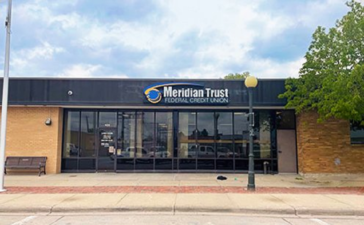Knowing how to safely invest can be overwhelming. While your goal is to make money, you also don’t want to risk losing too much. To help you navigate the investment world, we’ve rounded up a few of the best low-risk investments.
From precious metals to government bonds, these easy ways to invest are great places to start. Regardless of your budget, you can start building your net worth, save for retirement, and put your money to work. Here’s our go-to guide for how to start investing.
1. Precious Metals
Gold and silver in the form of coins and bars are safe investments with high returns. This Investorcrate.com article goes over the most common ways to invest in precious metals. Because you can physically hold these assets, precious metals make for some of the safest investments.
There is no digital aspect or virtual market to watch. You can keep your gold and silver in a vault, safe, or safety deposit box at your bank. You’ll be able to access your investment whenever you need and know where it’s stored. You will also be able to start investing without spending a ton of money. Precious metals are traded at all price points.
2. High-Yield Savings Accounts
High-yield savings accounts might not be what you traditionally think of when you think of an investment. What makes them a safe bet, however, is that your money will never decrease. You will always at least have whatever money you put in them. To get the added investment return, you can shop around for who is offering the best rate.
A high-yield savings account will reward you for putting in more money and keeping it there. You’ll see higher returns than with a traditional account. Your money is also backed by the United States government. Even if your bank goes out of business, your money is still safe.
3. Savings Bonds
Savings bonds aren’t technically a form of investment, but they can be. Think of a savings bond as an investment in your savings. The United States Treasury offers two different types of savings bonds. The first is the EE bond and the second is the I bond. With an I bond you will have a fixed rate, so you’re safeguarded from inflation.
The EE bonds will pay you interest for as long as 30 years. Anything purchased after 2005, will have a return rate that’s fixed. Keep in mind that if you cash out your bonds before a five-year period, you will pay a penalty.
While these aren’t investments, you can feel safe knowing your money isn’t going anywhere. You’ll have guaranteed savings with bonds.
4. Certificates of Deposit
A bank CD will never lose money unless you cash them out early. If you don’t touch your CD until the investment period ends, your bank will guarantee your interest rate. This means that once you buy your CD, you’ll receive a fixed rate of interest each year until the term ends.
A CD is also a great option for those that don’t have a ton of money to invest. You won’t need a large upfront deposit as you would with certain high-yield savings accounts. The risk of a CD only comes if you cash out early. Taking out your money before the term is up will cost you some of the interest your CD earned.
5. Money Market Funds
If you’re looking for a diversified investment without a ton of risk, a money market might be a good way to go. These funds are a combination of short-term bonds, CDs, and low-risk investment opportunities. Brokerage firms will group the investments together into one package.
Your money market fund will also be liquid. If you need to take money out for any reason, you won’t be penalized. These are some of the safest investments available. You’ll be told your rate of return and you can sit back and watch your money grow.
6. Treasury Investments
Treasury bonds, bills, and notes are also sold by the U.S. Treasury. These are known as TIPS or Treasury inflation-protected securities. Treasury bills will come into maturity in under one year. Treasury notes will go up to ten years and bonds will hit maturity after 30 years.
The nice thing about TIPS is that the value of your principal will go up regardless of inflation. These securities are safe because you’re buying them through mutual funds. There is a risk of losing money if you sell them before their maturity.
7. Corporate Bonds
Some corporations will also sell bonds. These are low-risk investments if you buy them from very profitable companies. To keep your risks low, take shorter maturity dates.
Even with the risks, bonds are still considered to be a lower risk than stock. This is because if a company goes bankrupt, bondholders will get paid out before a stockholder.
8. Stocks
Stocks are the riskiest form of investment when you compare them to cash, government bonds, or savings. Dividend stocks have lower risks than high-growth stocks.
Dividend stocks will go up and down with the market, but they won’t crash as much as a high-growth stock, for example. Dividend stocks come from more mature and stable companies. If you strike a high-growth stock at the right time, however, you’ll see a far greater return. The choice will depend on your own comfort level.
9. Real Estate
Real estate isn’t always without risk, but it can be a safe investment. Your home, for example, is a low-risk purchase. If you put down a healthy down payment and take out a short mortgage loan, you could have your home paid off. In this case, a home you own outright can sell at any point for cash.
If you make any improvements in your home, you could see a nice equity boost. Rental and investment properties are also a low-risk if you’re collecting monthly rent. This income will pay down your mortgage and reduce your debt.
The Best Low-Risk Investments for You
When it comes to the best low-risk investments, there are plenty of options available. Whether you want to build up your wealth or dabble in investing, there’s something for everyone and every budget.
From precious metals to mutual funds, these investments are easy and safe ways to start growing your net worth. For more finance and investment advice, check out the blog section for great guides and resources.









